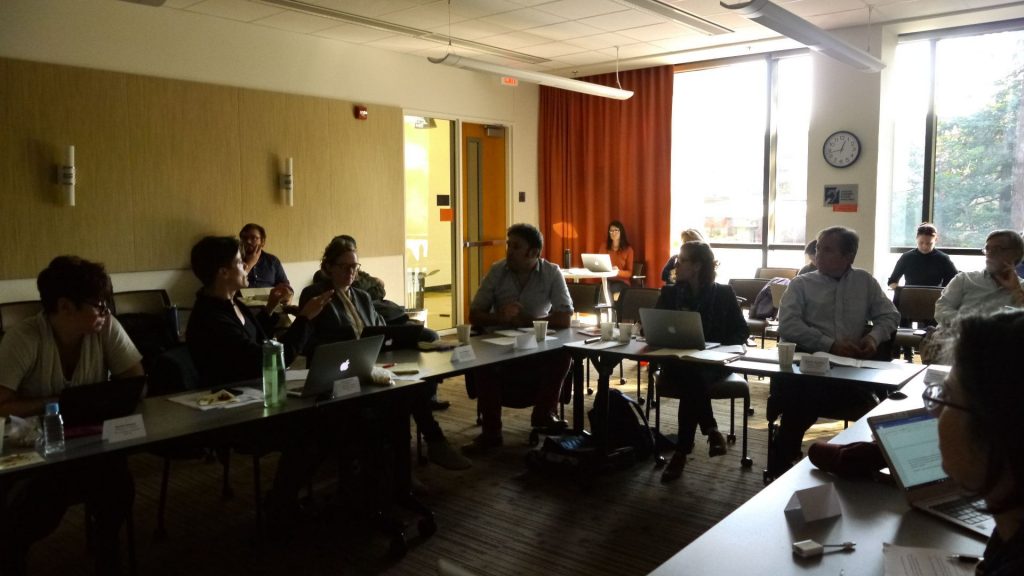The Science & Justice Research Center (SJRC) is a hub for generating unique methods for creating and building new spaces, visions and practices that help link questions of justice with techno-scientific and biomedical practices. We enact science and justice through a series of research practices as described below.
Have an idea? Propose an Event or Reading Group!
- Find community.
- Revamp your course to explore justice.
- Receive feedback on presented work.
- Gather to co-author papers.
- Support each other's’ research and teaching.
- Talk through emerging implications of your research.
The Science & Justice Working Group
As ever more aspects of society are shaped by scientific and technological practices and idioms, it is increasingly important to develop critical and productive dialogue across disciplinary differences. The Science & Justice Working Group (SJWG) achieves this by building spaces for scientists, engineers, humanists, social scientists, and artists to gather to discuss and share stories around matters of common concern. These meetings, which are the heart and soul of Science & Justice, often provide the seeds for future events and supported grant-funded projects.
Areas of Inquiry
The Working Group considers a very broad set of topics at the intersection of science and justice, but over time has focused on a cluster of areas of inquiry that recur in our research and programming. These themes guide our research and programming. The S&J community determines thematic areas of inquiry based on student and faculty research interests and ongoing projects.
Working Group Events
The Center aims to host two or three formal Working Group events and two or three informal gatherings per term along with several day long symposia and workshops per year, in addition to co-sponsoring many events hosted by partner organizations and departments. Our schedule of past and upcoming events are archived and announced through listservs and social media. We welcome proposals for collaboratively developed programming from any member of the campus community to host an event or a reading group in support of a formal event, workshop a paper or conference presentation, pursue group work on a project, or present personal research. All events should aim at being accessible to and fruitful for our diverse and interdisciplinary audiences.
Find out further information on conceptualizing, organizing, and planning formal and informal events or contact one of our current reading groups and research clusters or let us know above.
Critical Listening
Science & Justice practices an experimental method for curating dialogues called “critical listening.” Critical listening is a methodological tool to open up a space for reflective conversation across multiple events. The practice of critical listening will identify and develop key questions, critiques, and concerns providing a way to reflexively link those reflections into future projects and discussions. The role of the Critical Listener is to pay attention to the conversations taking place at our events, focusing especially on aspects that may go unreported in a transcription. Find more on the critical listener guide.
Collaborations in Teaching and Research
Collaborations take work and resources. At SJRC, we take collaboration seriously, aiming to model and teach best practices for working across disciplinary differences and building new research teams. See how SJRC practices collaborations to enact science & justice, ethics in practice, workflow, productivity and communication, and integrating research and curriculum.
Building New Communities in Civic Spaces and Online Spheres
We encourage students and faculty across campus to engage in Science & Justice activities and happenings. Students can bring a challenge, question, or in-progress project to an Experimental Mixer (previously known as a ‘cocktail hour’), develop ideas for new collaborative projects, present or moderate public events based on Center research themes. Our students also contribute to building new civic spaces by translating Center research and teaching into public dialogue online. To build our own capacity and skills for engaging with diverse publics, we host Op-Ed workshops and media advocacy workshops for our graduate fellows and faculty affiliates. Join us on Facebook and Twitter @SciJust.

